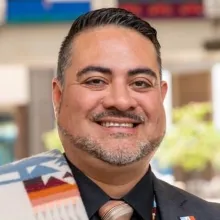LAW 695: Tribal Gaming Law & Regulation
August 19-20, from 9:30 AM to 3:30 PM
Application Closed
$25 Application Fee | Full-Tuition Scholarship for PYT Members
The course will explore the various laws and regulations that federally recognized Tribes are required to follow in order to conduct Indian Gaming as a form of economic development. Key topics include Federal Indian Law and policy, the history and origins of Indian Gaming, as well as state and tribal agreements/relations related to gaming operations. Additionally, the course will cover tribal regulatory responsibilities concerning their gaming facilities. It will also examine the roles and responsibilities of Tribes in their capacity as governments, ongoing efforts for securing tribal rights to self-governance and self-determination, and the dynamics between state laws and tribal gaming operations across the United States. Comparative analyses will highlight how different tribes manage their gaming operations in varying legal environments.
Key Questions:
- How does law function to create a framework for tribes choosing to operate gaming enterprises as a form of economic development?
- How can federally recognized tribes use law to secure rights and exercise tribal self-governance and self-determination through gaming enterprises?
- What role do tribes, states, and the federal government play in the operation of tribally owned gaming operations?
Class Schedule:
In person on August 19-20, 2025 from 9:30 AM to 3:30 PM at the PYT-UA Microcampus.
Course fee
Tuition for this course is $500. This includes coffee, breakfast and lunch for both days.

All PYT-UA Microcampus students are eligible for scholarships. Applicable scholarship awards are tiered, based on the below breakdown:
- PYT members and employees are eligible for up to 100% scholarships
- Non-PYT members and employees are eligible for up to 50% scholarships
Please email Law-PYTMicrocampus@email.arizona.edu for additional questions.
$25 Non-refundable Application Fee

$25 non-refundable application fee is mandatory in order to complete the application. The application fee payment link will be available on the application confirmation page after you have successfully submitted this application. Please indicate in the additional information field if you are paying on behalf of the applicant.
- Students who receive a 100% scholarship will only be required to pay the $25 application fee; they will not have to pay any tuition fees ($0).
- Students who receive a 50% scholarship will be required to pay the $25 application fee and 50% of the tuition fee ($250).
- Students who receive a 25% scholarship will be required to pay the $25 application fee and 75% of the tuition fee ($350).

Crystal James, San Carlos Tribal Gaming Department, Compliance Investigator
"To sum up this course in one word, “informative.” There were a lot of details wrapped into these two days that I was able to bring back to get a better outlook into the tribal gaming industry, from how it all started, to where it is today. Knowing the backstory, going back as far as the 1800s, of why some acts were created played a huge role into what tribal gaming is today, was very informative. Hearing the many issues regarding gaming at a legal level was also very interesting. I enjoyed this course and took in plenty of information to use in my role today and I would recommend my colleagues take a dive into this course to get a better understanding of tribal gaming and its origins."
Instructor

Francisco (Frank) Olea
Francisco Olea is an enrolled member of the Pascua Yaqui Tribe from the Pascua Pueblo reservation in Tucson, AZ. Olea has worked in the gaming industry since 2001, holding various supervisory and management positions with the Pascua Yaqui Tribe and the Tohono O’odham Nation in both the Tribal Gaming Office and Gaming Operations. Olea received his Bachelor of Arts from The University of Arizona, and his Juris Doctor from the University of Arizona’s James E. Rogers College of Law.
